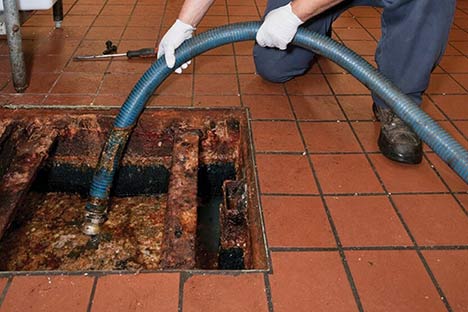
Plumbing issues can be a huge disaster in a restaurant business. Depending on how bad the problems are, they can put your toilets out of commission, let bad odors into the restaurant, interfere with your kitchen’s operation or even force the local authorities to shut down your business.
Because of the number of plumbing equipment and the amount of water they use, restaurants are highly-prone to plumbing issues. Managing the plumbing to detect and avert problems should be a major focus of your day-to-day programs to keep your restaurant operating smoothly and profitably.
Unless the issues with the restaurant’s plumbing system are kept to a minimum, they can become a huge drain on your business’ resources. You and your staff will find yourself spending inordinate amounts of time wrestling with avoidable issues that contribute nothing to improving the bottom line.
To manage a restaurant’s plumbing in a way that helps you avoid problems, you need three things:
- You should know the common plumbing issues that are likely to happen in the restaurant
- You should understand the cause of those problems and how to detect them early
- You should have a licensed and experienced restaurant plumber who can solve problems quickly
In this post, we will talk about the common plumbing issues in restaurants and what you can do to prevent them.
Six common plumbing problems in restaurants and how to prevent them

Drain clogs caused by debris from the dishwasher are the number one plumbing problem in restaurants.
Clogged drains caused by mismanaging the dishwasher station
Drain clogs caused by debris from the dishwasher are the number one plumbing problem in restaurants. This problem results from servers not fully disposing of leftover food and other residue before dumping dishes in the dishwasher. The dishwasher washes this debris into the drain, eventually clogging it. Fixing this problem is simple; installing a wire mesh over the drain will prevent large debris from entering the drains. Training your servers to wipe dishes clean before putting them in the dishwasher also helps.
Clogged grease lines
Restaurants use a lot of grease and need a way to dispose of used-up grease. Sometimes, that used-up grease finds its way into the drainpipes instead of being disposed of in the trash bin. Once inside the pipes, that grease will harden, cling to the surface of the pipes and gradually block them. Issues with grease also happen with the grease trap. Although it is the designated grease-disposal system, if grease traps are not cleaned regularly, they can cause problems in the restaurant. You will want to hire a professional grease trap cleaning service to perform maintenance and cleanings on the regular.
Fryers and gas line issues
Clean your fryers every day. That usually means pulling them out to drain them. In this process, the gas line attached to the fryer may become loose. That can result in gas leaks and risks of fires in the kitchen. Gas lines, apart from issues with the fryer, can also have their problems. These are often due to defective gas lines, either from poor installation or improper maintenance. You can prevent this problem if you inspect the gas line regularly and your staff are more careful when handling the fryer.
Clogged floor drains
A clean floor is one of the things that make a restaurant attractive. Clean floors will make work easier and the restaurant environment safer for your staff. But restaurant workers often clean the floor simply by spraying it down and squeegee-ing all the water into the drain, along with any debris on the floor. The result is a constant problem with blocked floor drains. To prevent this problem, install a mesh strainer or drain lock on the floor drain to keep debris out of it.
Clogged bar drains
Like most of the issues discussed above, this problem is also caused by restaurant workers. Instead of throwing leftovers like cocktail-making components, lime wedges, orange peels and other items into the trash, bartenders simply flush them down the sink. These materials lodge inside the pipes and block them. Training bartenders and other staff who work at the bar on proper waste disposal will prevent this issue. You can also install wire mesh on the drain opening.

When a restaurant’s toilets overflow, it is often because paper towels and feminine hygiene products have been flushed down the toilet.
Maintain your restrooms
When a restaurant’s toilets overflow, it is often because paper towels and feminine hygiene products have been flushed down the toilet. To reduce the risk of visitors using the restaurant’s toilet as waste disposal, install hand dryers to make the use of paper towels unnecessary. Also, provide sanitary disposal containers for easy disposal of female hygiene items. You also want to ensure your restrooms are inspected and cleaned every hour.
Finally, you need the services of a commercial plumber to keep your restaurant’s plumbing systems functioning properly. But finding a good plumber is not enough; the kind of relationship you have with the plumber also matters.
Instead of contacting the plumber only when you have issues with your plumbing, it is better to have a service agreement with the plumber. The plumber can inspect your restaurant’s plumbing according to a schedule to find and fix problems before they worsen.
This method of maintaining your restaurant’s plumbing is the best way to avoid plumbing issues.
